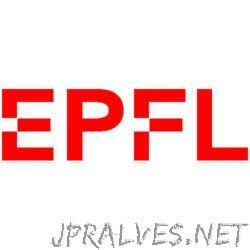Other

“Researchers at EPFL and Max Planck have merged nonlinear optics with electron microscopy, unlocking new capabilities in material studies and the control of electron beams. When light goes through a material, it often behaves in unpredictable ways. This phenomenon is …

“EPFL physicists propose a novel way to create photoconductive circuits, where the circuit is directly patterned onto a glass surface with femtosecond laser light. The new technology may one day be useful for harvesting energy, while remaining transparent to light …

“EPFL researchers are targeting the next generation of soft actuators and robots with an elastomer-based ink for 3D printing objects with locally changing mechanical properties, eliminating the need for cumbersome mechanical joints. For engineers working on soft robotics or wearable …

“EPFL researchers have developed the first comprehensive model of the quantum-mechanical effects behind photoluminescence in thin gold films; a discovery that could drive the development of solar fuels and batteries. Luminescence, or the emission of photons by a substance exposed …

“In the realm of quantum mechanics, the ability to observe and control quantum phenomena at room temperature has long been elusive, especially on a large or “macroscopic” scale. Traditionally, such observations have been confined to environments near absolute zero, where …

“Developed by EPFL researchers, the first large-scale in-memory processor using 2D semiconductor materials could substantially cut the ICT sector’s energy footprint. As information and communication technologies (ICT) process data, they convert electricity into heat. Already today, the global ICT …

“EPFL scientists show that it is possible to make a femtosecond laser that fits in the palm of one’s hand using a glass substrate. Is it possible to make a femtosecond laser entirely out of glass? That’s the …

“Scientists at EPFL have synthesized the first ever metal-organic frameworks membrane with thickness of just one unit cell. The ultrathin film yields record-high separation performance of hydrogen. Metal-organic frameworks (MOFs) are a class of materials that contain nano-sized pores. These …

“The fusion of 2D semiconductors and ferroelectric materials could lead to joint digital and analog information processing, with significant improvement in energy consumption, electronic device performance, and lead to novel functionalities. We live in an analog world of continuous information …

“Scientists at EPFL have successfully extended the quantum state lifetime of a mechanical oscillator, a development with vast implications for quantum computing and communication systems. Over the past decade, scientists have made tremendous progress in generating quantum phenomena in mechanical …

